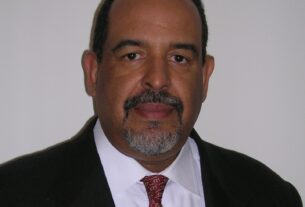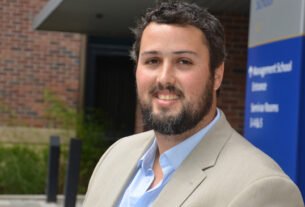The Hospital Italiano offers a course specializing in Health IT as part of its HIBA residency program through its University Institute.
The course trains recently graduated doctors in supporting the work of other doctors. It includes tools from Healthcare Administration and Management Sciences as well as studies in new technologies such as computer and information sciences. Also, as the discipline is relatively new, it includes a space dedicated to research into the impact of its application for which reason it also involves the study of epidemiological issues.
The training program is designed both for those who have just graduated and those who already have a specialty, the former studying for 4 years and the latter for 2 years.
Recent graduates from the faculty of medicine spend 2 years as clinical medical residents at the Hospital Italiano, training in patient care and getting in-depth knowledge of how hospitals work; the dynamics, structure, colleagues and the information needs of doctors and patients. In the second 2 years the resident/student works Mondays to Fridays from 8AM to 6PM, most of the day being involved in projects to improve information systems; there’s a lot to do at the hospital, but we also act as consultants for many clinics, sanatoriums and hospitals that are starting out on the process of computerizing their healthcare systems so that information can be accessed quickly and in a useful format. Also during this schedule, over the 2 years the residents take 16 subjects that are part of the specialist course recognized by the National Ministry of Education. These subjects are also part of a soon to be announced masters course that will allow the resident/student to finish the course with a thesis and obtain the title of Master.
Interested in finding out more about the experience we interviewed three current residents participating in the program:
Andrea Nishioka. A first year Health IT Resident. She previously took a residency in Intensive Care.
Alfredo Almerares. A Health IT Resident. He previously took a residency in Pediatrics.
Diego Salomón. A first year Health IT Resident Nurse.
EHEALTH REPORTER LATIN AMERICA: Why did you choose to specialize in Health IT?
Andrea: After finishing my intensive care residency I wanted to take another specialty and I am very interested in the subject of transferability of content and information technology’s potential to make comprehensive monitoring of patients possible.
Alfredo: It’s an opportunity to combine my personal passion for medicine with the interest I have always had in technology, advances in information management and other similar subjects. It seemed to me that the area of Health IT is also an ideal place to develop skills in research and epidemiology which I became interested in during my pediatrics residency.
Diego: I have also always been very interested in IT. I think that it is a challenge to learn how to apply computing in nursing and that doing so will give me personal satisfaction.
EHRLA: Why did you choose the Hospital Italiano?
Andrea: As far as I know, it’s the only place that offers us the opportunity to do this in a systemized way, and also because it is a leading center of Health IT and has been for some time.
Alfredo: Because it is a continental leader not only in Health IT but also as an academic institution with its own medical faculty, which carries out many research projects and is the ideal environment for specializing in this subject.
EHRLA: When someone asks you “What are you studying?” what is your simple answer?
Alfredo: That’s one of the most complicated questions – one that everyone involved in Health IT has to face up to. I personally define it and then try to provide an example of one of the activities we do. But what I try to emphasize is that it is a new field that involves healthcare sciences and interdisciplinary work, because we work together with nurses, engineers and sociologists, seeking out ways to use information better in order to solve problems, exploring ways to achieve a beneficial effect on the health of the population in general. We manage information and seek out new ways to use the information at our disposal.
Andrea: Well… it’s difficult. In general, people assume that the spectrum is much more limited and think that “I’m going to fix the computer” and although that’s not our role, in practice it often ends up being one of the things we do, simply because we might be more skilled in the technology than our colleagues. But if I have the chance to explain it properly, I define it as the application of information technology to helping people resolve specific and general healthcare problems.
Diego: If I’m asked what Health Information Technology is, I say that apart from computers and things, which is the first thing to come into people’s heads , it is the ability to see processes. That when treating a person, be they healthy or sick, at the different levels of care, what we do with Information Technology is try to optimize the processes in an easy and comfortable manner for healthcare staff, which will result in the individual receiving better quality care, and a better quality of health as well.
Andrea: I hope that awareness of the discipline spreads among the general population. At some point it will become a necessity and governments will need to implement it, gradually of course, but ensuring that people can have access to their own information. It is critical that clinical information isn’t fragmented so that it can be used properly, to empower the patient and enact a series of beneficial actions that generally, at the moment, we aren’t yet in a position to do.
EHRLA: What have you liked so far in your training and what support have you received in your professional training?
Alfredo: We do two things here at the Hospital Italiano; learning in scheduled classes every day in different subjects related to the residency or specialty course and secondly learning by doing. We have an Electronic Health Record which is the heart of our system and we are constantly working with it and trying to find ways to add applications or make it more useful for our doctor users.
Diego: The classes I get are very good because they are given by people who have actually done what they are teaching before so the experience they share with us is excellent and first hand; so much more enriching than reading a book. The feedback from the professors is great.
Andrea: As well as the academic section being excellent, we all have personal projects, or we are part of other people’s projects and see how the teaching we get day to day can be applied to the processes. We learn how things happen and how to improve what we’re doing. The academic and practical aspects always go hand in hand.
EHRLA: What projects are you each working on?
Alfredo: I take part in both research and development projects. With regard to development we are working on a formal messaging system between users of the health portal and doctors at the hospital. We already have a messaging system but we’d like to perfect it and make it so that both head doctors and specialists can participate. In research, Andrea and I are working on a project on gestational diabetes, trying to increase monitoring of patients who have been diagnosed with gestational diabetes after giving birth. Obstetricians are worried because many patients don’t come in for check-ups after the sixth week after giving birth. This is not just a local problem, it occurs worldwide and there isn’t much of a bibliography with regard to ways of solving it so we are trying to develop, implement and test a system. I am also working with Diego on a project related to mobile devices that will help nurses work at the patient’s bedside so they don’t have to go to their stations to enter data, with the associated risk of losing all or some of the information. So we are testing the best device with the greatest usability for nurses.
Diego: I also joined a project that was already running working on label printers in different service areas and am participating in training in the functioning and handling of these new printers.
EHRLA: How do you foresee your professional future?
Andrea: There aren’t many centers in Argentina that currently have an electronic health record system installed, some were started with a system already installed and others, like the Hospital Italiano, have developed one. We’re betting that in the future they will spread and we will develop them in other places. I also work for the municipality and my idea is to work partly for the centers where I work now and eventually, obviously, to stay linked to the Hospital which, well, I already feel a part of.
Alfredo: Personally I am sure, it’s something in the air here, that demand for health IT professionals will grow. The Hospital is constantly receiving calls requesting evaluations of other institutions and help. My only worry would be whether this demand will be met and so I believe that we need to involve more healthcare professionals in training in Health IT.
Diego: I think that this residency ensures a secure future. This can be seen in how electronic records are developing, how systems are being optimized and how quality records are being sought out, etc., all of which is provided by Health IT. I’d love to keep working at this hospital and I’m also very interested in teaching. E-Learning is something that excites me and I think I would love to work on developing the field.


